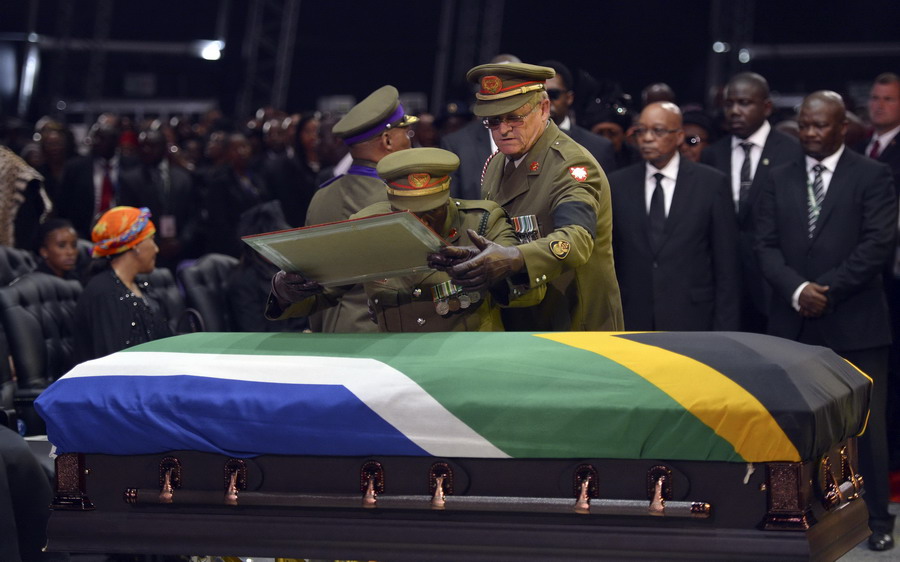"DON'T CALL ME"
Mandela served just one term as leader of Africa's biggest and most sophisticated economy, and formally withdrew from public life in 2004, famously telling reporters at the end of a farewell news conference: "Don't call me, I'll call you."
 |
|
Officers leave a frame on coffin of former South African President Nelson Mandela during the funeral ceremony of in Qunu December 15, 2013. [Photo/Agencies] |
His last appearance in public was at the 2010 World Cup final in Johannesburg's Soccer City stadium, waving to fans from the back of a golf cart.
Yet such was his influence as the architect two decades ago of the historic reconciliation between blacks and whites that his passing has left a gaping hole in the heart of South Africa.
With an eye on elections in five months, the ruling African National Congress (ANC), the 101-year-old former liberation movement Mandela once led, has seized on his death as a chance to shore up popularity that is ebbing even in its black support base.
The strategy has not been without its risks, not least because it has highlighted the gulf in stature between Mandela and the scandal-plagued Zuma.
It backfired spectacularly at a mass Mandela memorial at Soccer City on Tuesday when Zuma, under fire for a $21 million security upgrade to his private home, was booed and jeered in front of world leaders including U.S. President Barack Obama.
But barring an upset next year, Zuma looks set for another five years in office, during which he will have to address an economy struggling to shake off a 2009 recession and the fragmentation of a vital ANC alliance forged with the unions in the common struggle against apartheid.
With unemployment at 25 percent and racial inequality still painfully evident - the average white household earns six times more than the average black one - pressure for radical economic transformation is only likely to increase.
Against that backdrop, the party is desperate for strong and decisive leaders to guide South Africa through the myriad complexities of the 21st century global economy and allowing it to claim what it believes is its rightful place at the world's top table.
Both inside and outside the party, there are doubts whether Zuma, a polygamous Zulu traditionalist with no formal education, is the right man for the job.
"We need to raise the level of leadership," former president Thabo Mbeki, who was unceremoniously ousted by Zuma as ANC leader six years ago, said in eulogies to Mandela last week.
"The transformation of South Africa is a very difficult task, I think in many respects more difficult than the struggle to end the system of apartheid."
|
|
|
|
|
|
|
|